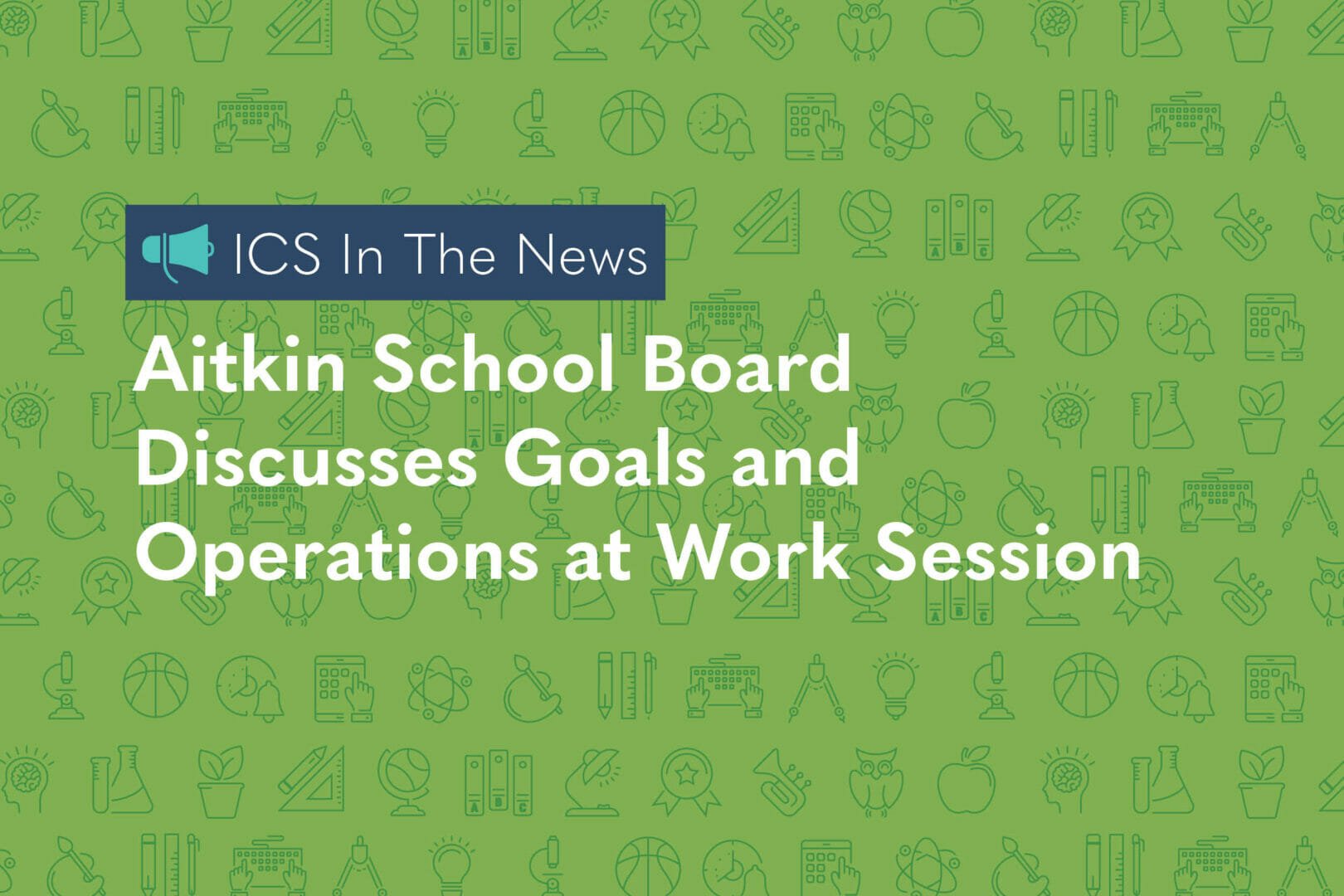Article originally posted on Aitkinage.com.
As Aitkin Schools prepare for a transition in leadership with the incoming superintendent, the school board met to discuss the future of the district during a work session on June 13. Among the topics of focus were board operations and immediate and long-term facility goals.
FACILITY GOALS
The board revisited its two failed attempts to pass referendums; $24.2 million for renovations and additions, and later a $68 million referendum for a new building.
Meanwhile, the list of facility maintenance and repairs continues to grow with the aging school facilities in Aitkin. The board discussed the importance of keeping the schools safe and up to date for students.
“We will be spending more money long-term because all of these small projects are costing more,” Chair Cindi Hills said.
“How do you explain that to the taxpayer?” asked board member Dennis Hasskamp. “You can’t appease everyone but it has to be looked at as the big picture.”
Site planning for the district’s 221-acre Aitkin Township property purchased in 2016 has been underway. An additional 1.26 acres was purchased the following year which allowed the district to annex to the city of Aitkin, enabling additional access to funding and grants. Bids are also out for removal of a collapsing hay barn on the property.
However, with several turnovers of the superintendent position in the past four years, site plan progress has been a challenge. The long-term plan (25-plus years) is to have district facilities on a single site. Preliminary concept discussion centered around the first educational building on the site being an elementary school.
“You need to present the benefits of building a new elementary school to the community. You need to get buy-in,” said Interim Superintendent Charles Rick. “The board needs to present a united front. There are not a lot of other schools to compete with. This is a county seat, and schools attract people.”
An elementary would be less expensive to construct per square foot, as opposed to the complexity of constructing a high school. Presently, the board is focusing on maintaining and repairing the current buildings.
The Local Option Revenue (LOR) tax levy was approved by the board in 2017. Board member Jeremy Janzen said that while some constituents express frustration with the LOR tax increase, Aitkin County ranks fourth-lowest for tax burden in the state.
The district is now moving forward with its Phase II in high school renovations with the use of long-term facilities maintenance funds, in addition to a school safety grant.
Incoming Superintendent Dan Stifter said it is a struggle to keep up with changes in education and keep up with the costs. “It’s a good start with the remodeling and construction at the high school. It shows we put our money where our mouth is. We need to keep with the discussion of what is next. We need to show that there is progress being made.”
A presentation of the site plan by ICS Consulting Inc. will take place at a future board meeting.
BOARD OPERATIONS
Hasskamp brought the topic of board operations to the work session. He said he is concerned the board is not functioning properly due to the lack of administrative protocol.
Hills argued that following protocol isn’t effective if the command at the end of the chain is not receptive. She added there is a lack of trust and communication among board members, as well as from the community. “I feel like we are arm wrestling when we should be walking hand in hand,” Hills said.
In order to build better trust and communication between members, Stifter suggested the board seek consulting services. The recommended program totals $6,600 and includes confidential coaching and training in a retreat setting. The topic will be revisited at an upcoming board meeting.
